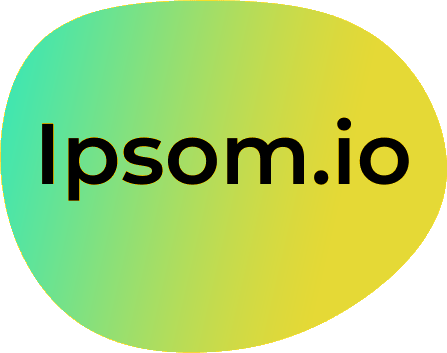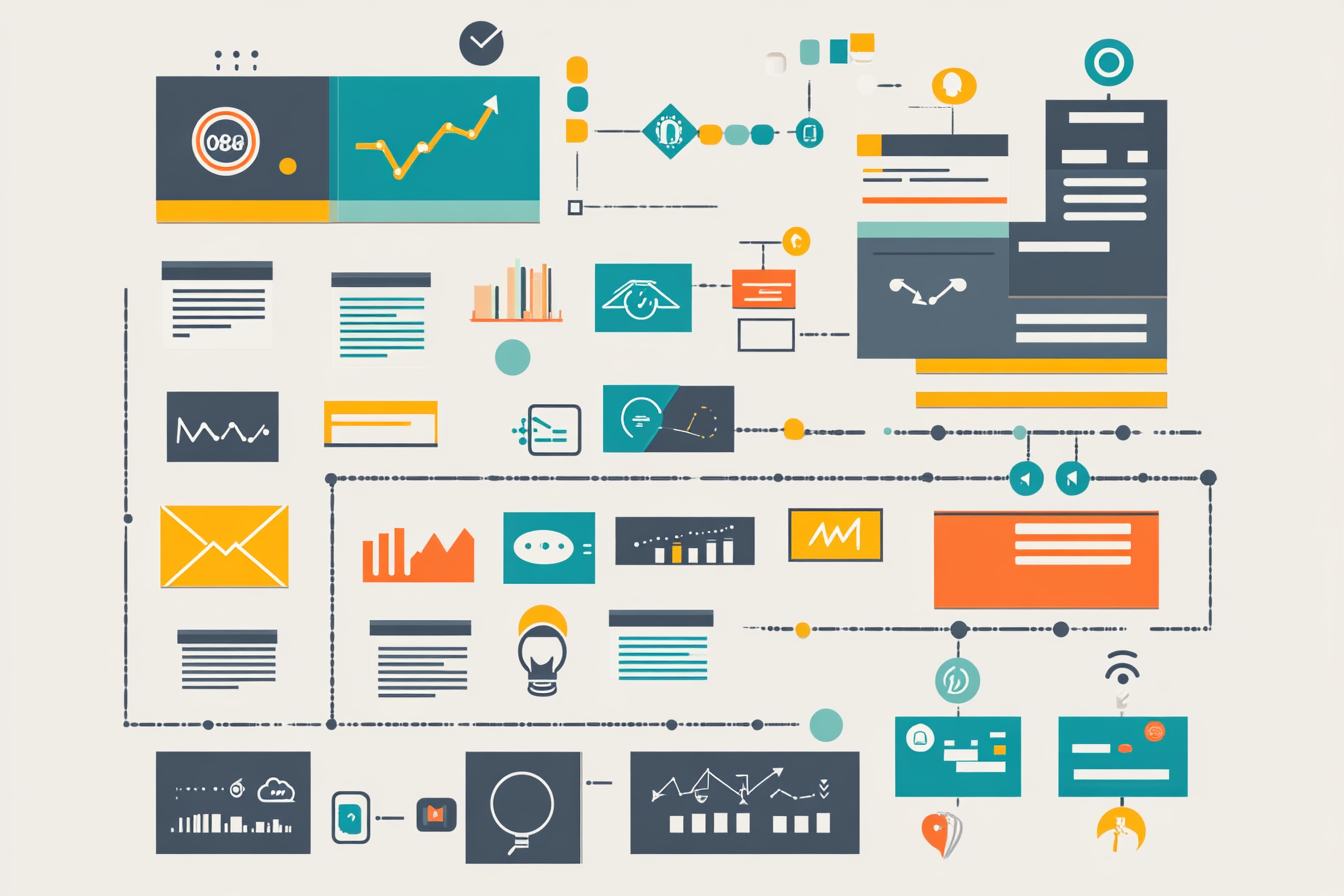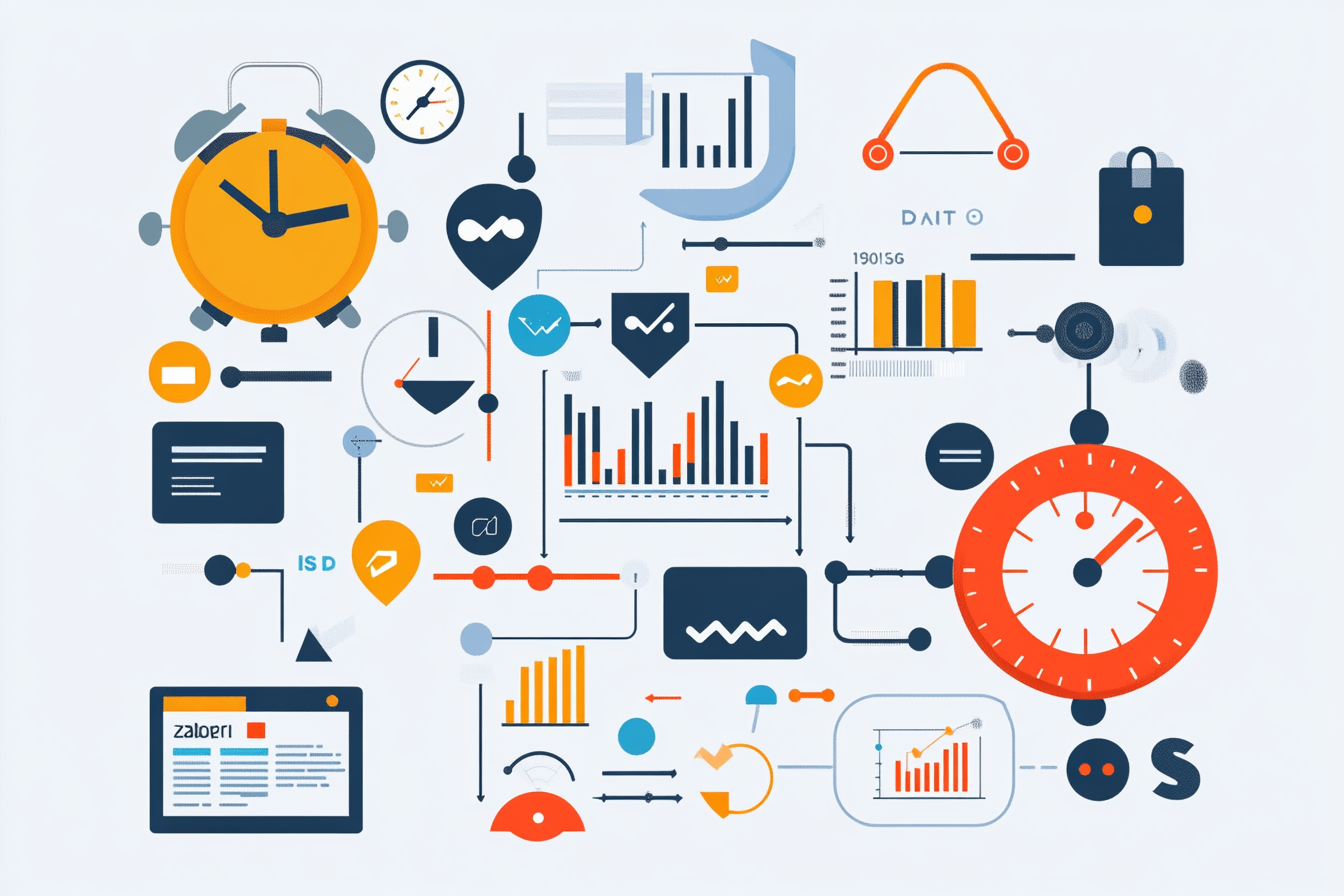Marketing automation refers to the technology that allows marketing teams to efficiently manage their marketing tasks, assets, and campaigns through the use of specialized software. As businesses increasingly recognize the value of automating repetitive tasks, marketing automation has emerged as a powerful solution for streamlining operations and enhancing customer engagement.
Key Takeaways
- Definition: Marketing automation involves using tools to streamline marketing tasks, enabling teams to focus on strategy rather than repetitive activities.
- Popular Tools: Brevo, HubSpot, Omnisend, ActiveCampaign, Klaviyo, Customer.io, and Mailchimp are notable marketing automation platforms.
- Evaluation Criteria: Look for automation capabilities, integrations, price to value, ease of use, and comprehensive reporting and analytics.
- Trends: Approximately 56% of businesses use marketing automation technology with growth expected.
Elevate your marketing strategies with professional automation solutions at ipsom.io.
Understanding Marketing Automation
Marketing automation is the technology that helps streamline marketing tasks and campaigns. It shifts the focus from repetitive activities to strategic initiatives. By automating processes, marketing teams save time and enhance their effectiveness.
What is Marketing Automation?
Marketing automation involves using specialized software to handle various marketing tasks. This includes sending emails, managing campaigns, and tracking customer interactions. The primary purpose is to increase efficiency. It allows marketers to focus on high-level strategies instead of mundane tasks.
The benefits of marketing automation are significant. It streamlines workflows, saves valuable time, and enhances campaign effectiveness. Companies can reach their audience more efficiently by targeting campaigns based on user behavior.
Importance of Marketing Automation
The importance of marketing automation cannot be overstated. It increases efficiency and productivity within teams. By automating routine tasks, marketers can concentrate on developing strategies that drive business growth.
Moreover, it enhances lead generation and management. Automated systems can quickly handle customer interactions, ensuring that leads do not fall through the cracks. This capability helps businesses nurture leads more effectively, leading to higher conversion rates.
Types of Marketing Automation Tools
Marketing automation tools streamline various marketing tasks, making processes more efficient. They can save time and enhance customer engagement through automation across channels. Understanding the different types of marketing automation tools can help you choose the right fit for your business needs.
Overview of Marketing Automation Tools
Marketing automation tools can be categorized into several types:
-
Email Marketing:
- Automates email campaigns to nurture leads and retain customers.
-
SMS Notifications:
- Sends targeted messages directly to customers' mobile devices.
-
Lead Scoring:
-
Assigns scores to leads based on their engagement, helping prioritize follow-ups.
-
CRM Updates:
- Automates customer relationship management tasks, keeping databases up-to-date.
-
Drip Sequences:
- Sends a series of pre-defined messages to engage subscribers over time.
-
Sales Lead Rotation:
-
Distributes leads evenly among sales team members.
Multi-Channel Capabilities:
- Important for reaching customers through various platforms, enhancing your engagement potential.
Popular Marketing Automation Software
There are several notable marketing automation platforms available:
-
Brevo:
- Affordable all-in-one solution with multi-channel automation.
-
HubSpot:
- Offers premium features for larger businesses and extensive integrations.
-
Omnisend:
-
Budget-friendly option focused on eCommerce solutions.
-
ActiveCampaign:
- Robust AI features and multilingual workflows for diverse audiences.
-
Klaviyo:
- Tailored for eCommerce, known for its easy customization.
-
Customer.io:
-
Focuses on powerful workflow automation.
- Mailchimp:
- Widely used for solid email marketing and automation features.
Choosing the Right Tool
-
Evaluate Capabilities:
- Consider features in line with your business objectives and marketing strategy.
-
Explore Options Online:
- Look into reputable marketing automation tools to find the best fit for your needs.
Evaluating Marketing Automation Tools
Choosing the right marketing automation tool is essential for maximizing efficiency and effectiveness in your marketing efforts. A thorough evaluation can help ensure that the platform selected aligns with your business goals.
Key Criteria for Evaluation
First, assess the automation capabilities. A good tool should support multiple marketing media like email and SMS. This versatility enables broader engagement strategies.
Next, consider integrations and functionality. The tool must seamlessly integrate with your existing CRM and other software. This integration minimizes complications in your workflow.
Evaluate the price to value. Compare costs and features to ensure the platform offers value for your investment, especially if you are a small-to-medium-sized business.
Also, the ease of use is crucial. Look for platforms with user-friendly interfaces and strong support systems. A tool that is simple to navigate helps your team adopt it quickly.
Lastly, check the reporting and analytics capabilities. It is vital to track metrics and performance. These insights allow you to optimize your campaigns effectively.
Recommended Practices for Selection
Start by determining your business needs and budget constraints. Understanding what your business requires will narrow down your options.
Evaluate the usability and potential learning curve of various platforms. A quick assessment can save time in the long run.
Explore the analytics and reporting capabilities offered by different tools. This will help you forecast how well you can measure your marketing success.
Whenever possible, request demos or free trials. This hands-on experience will provide invaluable insights into whether the platform is the right fit for your business.
Key Features of Marketing Automation Platforms
Understanding the key features of marketing automation platforms is crucial for maximizing your marketing efforts. These features enhance efficiency, allow for better targeting, and ultimately improve your return on investment.
Common Features Across Platforms
Most marketing automation platforms share similar core features that help businesses streamline their marketing tasks.
- Multi-channel messaging options: These tools enable automation across various channels like email, SMS, and social media. This ensures consistent communication with customers.
- A/B testing capabilities: This feature allows marketers to test different versions of their campaigns to determine which one performs better. Testing can lead to improved engagement and conversion rates.
- Unlimited sequencing and drag-and-drop tools: User-friendly interfaces facilitate easy campaign creation. Marketers can build complex workflows without technical skills.
- Comprehensive analytics and reporting: Tracking the success of campaigns is vital. Robust analytics help assess audience engagement and identify areas for improvement.
Advanced Features in Notable Tools
Depending on the platform, you may find advanced features that cater to specific business needs.
- Salesforce Pardot: Known for its powerful automation capabilities; however, it can be costly.
- HubSpot Marketing Hub: Offers a wide range of features but comes with a steeper learning curve.
- Mailmodo: Stands out for its focus on AMP-powered interactive emails, which can greatly enhance user engagement.
- GetResponse: Includes expanded features like SMS and email chat capabilities, enabling more direct customer interactions.
By selecting a platform with the right features, businesses can tailor their marketing strategies effectively and enhance overall performance.
Trends in Marketing Automation
The trends in marketing automation highlight how this field is rapidly evolving. Currently, around 56% of businesses utilize marketing automation tools, and this number continues to grow. The rise of artificial intelligence (AI) is transforming how companies approach automation. Businesses now prioritize personalized customer interactions through data-driven insights.
The Evolving Landscape
As technology improves, marketing automation tools become more sophisticated. AI advancements allow for enhanced decision-making, targeted campaigns, and predictive analytics. This development enables marketers to deliver highly personalized experiences to their customers. Emphasis on customer engagement is increasing, pushing businesses to tailor content and offers based on user behaviors and preferences.
Challenges and Considerations
While evaluating marketing automation tools, businesses must find a balance between cost, features, and usability. As the landscape changes, it is essential to consider future-proofing strategies. This includes planning for potential upgrades and integration options that align with the evolving needs of the business.
Staying informed about these trends is vital for any company looking to leverage marketing automation effectively. Embrace innovation to remain competitive and enhance customer satisfaction.
Integrating Automation into Marketing Strategies
Integrating automation into marketing strategies is essential for maximizing efficiency and engagement. A well-structured automation strategy ensures that customers receive relevant messages at the right time.
Developing a Comprehensive Automation Strategy
To create an effective automation strategy, start by integrating lead generation and management processes into your automation tool. Identify repetitive tasks that can be automated and streamline your workflows. Utilize integration platforms like Zapier to connect various tools and expand your capabilities. This connectivity can enhance the overall customer journey by providing timely information and support throughout their experience.
Measuring Success and Performance
Measuring success is crucial to understanding the effectiveness of your automation efforts. Tracking KPIs (Key Performance Indicators) provides insights into customer engagement and campaign performance. Regularly review this data to determine what works and what doesn't. By constantly updating and optimizing your automation strategies based on performance data, you ensure your marketing remains relevant and effective.
For expert guidance in developing effective automation strategies, connect with our team at ipsom.io.
FAQ
What is the purpose of marketing automation?
The purpose of marketing automation is to:
- Streamline and simplify marketing efforts
- Automate repetitive tasks
- Manage campaigns efficiently
- Analyze performance
This allows marketers to focus more on strategy and less on routine activities.
What are the top marketing automation tools available?
Some of the top marketing automation tools include:
- Brevo
- HubSpot
- Omnisend
- ActiveCampaign
- Klaviyo
- Customer.io
- Mailchimp
Each tool offers unique features tailored to different business needs.
How do I evaluate the best marketing automation software for my business?
To evaluate marketing automation software, consider the following criteria:
- Automation capabilities
- Integration ease
- Cost versus features (price-to-value)
- User-friendliness
- Reporting and analytics capabilities
Assess how each tool meets your specific business needs.
What features should I look for in a marketing automation platform?
Look for features such as:
- Multi-channel messaging (email, SMS, social media)
- A/B testing options
- Unlimited sequencing and drag-and-drop tools
- Comprehensive analytics and reporting
These features help optimize your marketing campaigns effectively.
How can marketing automation improve lead generation efforts?
Marketing automation enhances lead generation by:
- Streamlining processes
- Nurturing leads through automated email campaigns
- Scoring and customizing leads
This targeted approach helps convert leads into customers.
What are the differences between various marketing automation tools?
Different marketing automation tools vary in:
- Pricing models and costs
- Features offered (e.g., email focus vs. multi-channel)
- User interface and ease of navigation
- Integration capabilities with other software
Evaluating these aspects helps you choose the right tool for your needs.
How can I ensure that my marketing automation strategy is effective?
To ensure effectiveness:
- Regularly track KPI performance
- Adapt strategies based on data
- Optimize automated campaigns for continuous improvement
Constant evaluation and adjustments play a crucial role.
Can small businesses benefit from marketing automation?
Yes, small businesses can greatly benefit from marketing automation by:
- Saving time
- Lowering costs
- Improving customer engagement
Automation enables small teams to work more efficiently and effectively.
How does AI impact marketing automation tools?
AI enhances marketing automation by:
- Providing deeper data insights
- Enabling personalization
- Improving customer targeting
AI-driven features allow for smarter workflows and decision-making processes.
What are the common mistakes to avoid when implementing marketing automation?
Common mistakes to avoid include:
- Overcomplicating workflows
- Neglecting audience segmentation
- Failing to track performance metrics
- Ignoring ongoing optimization
Avoiding these pitfalls helps ensure smooth implementation and better results.






